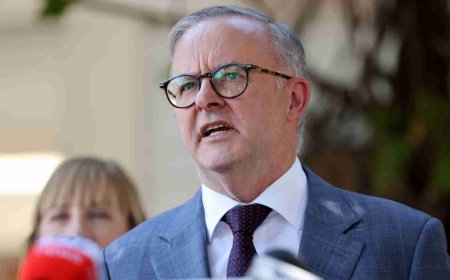New Limits on International Student Intake in Australia | Australia Study Visa News
In a bid to reduce migration, the government will limit the intake of international students by implementing caps on the number of new enrolments at each educational institution. This move aims to mitigate the political fallout from high migration rates before the next election.

The cap will particularly affect major universities like those in Sydney, Melbourne, NSW, Monash, and Queensland, which have continued to admit large numbers of international students despite the government's efforts to slow down student visa processing since December, aiming to decrease Australia's record net migration rate.
However, instead of a strict cap, the new measure will be softer, allowing institutions to negotiate a higher cap if they invest in new student accommodation for both domestic and international students, thereby easing pressure on the rental market. Additionally, the government plans to negotiate with universities and colleges to limit the number of international students enrolled within a specific timeframe.
Legislation containing the cap on international students will be presented to parliament in the coming week, along with measures to crack down on unscrupulous vocational colleges exploiting loopholes in international student regulations.
The proposed bill will prohibit colleges from owning education agent businesses, halt the registration of new international education providers, require new providers to demonstrate a history of providing quality education to domestic students before enrolling international students and prevent colleges under serious regulatory investigation from enrolling new students.
Furthermore, education agents will be prohibited from receiving commissions when international students transfer between educational providers in Australia.
Although the decision to impose limits on international student numbers is a setback for the sector, seen as a response to political pressure to reduce migration, the introduction of a softer cap is preferable to a rigid limit. Education Minister Jason Clare stated that these changes are intended to ensure the integrity, quality, and sustainability of Australia's international education sector.
The University of Sydney is anticipated to be particularly affected by this policy. It has significantly increased its intake of international students this year, taking advantage of favorable regulations for universities with low visa risk. For instance, the number of visas issued for international students starting in the first semester this year exceeded 13,000, compared to about 8,000 last year.
Additionally, the federal budget is expected to include plans for a discussion paper addressing the critical shortage of student housing. This paper will explore options to alleviate housing stress and the role of universities in addressing the crisis.
These announcements follow mounting pressure on the government to tackle the housing shortage, attributed to record numbers of international students. In the budget, Education Minister Mr. Clare is also likely to announce the rollout of fee-free preparatory courses to help students prepare for university entry, as recommended in the Universities Accord.
Tags:
- International Students
- Student Visas
- Government Policy
- Immigration Reform
- Australia
- Migration
- Education
- Student Enrollment
- University
- College
- Immigration Regulations
- Student Accommodation
- Education Sector
- Visa Processing
- Political impact
- Migration rates
- Education Quality
- Housing Shortage
- Regulatory measures
- Vocational colleges
- Home Affairs
- Labour policy
- Education agents
- Quality Education
- Regulatory compliance
- Housing stress
- Government legislation
- Student Housing
- University expansion
- Policy Changes
What's Your Reaction?
 Like
0
Like
0
 Dislike
0
Dislike
0
 Love
0
Love
0
 Funny
0
Funny
0
 Angry
0
Angry
0
 Sad
0
Sad
0
 Wow
0
Wow
0







































































































